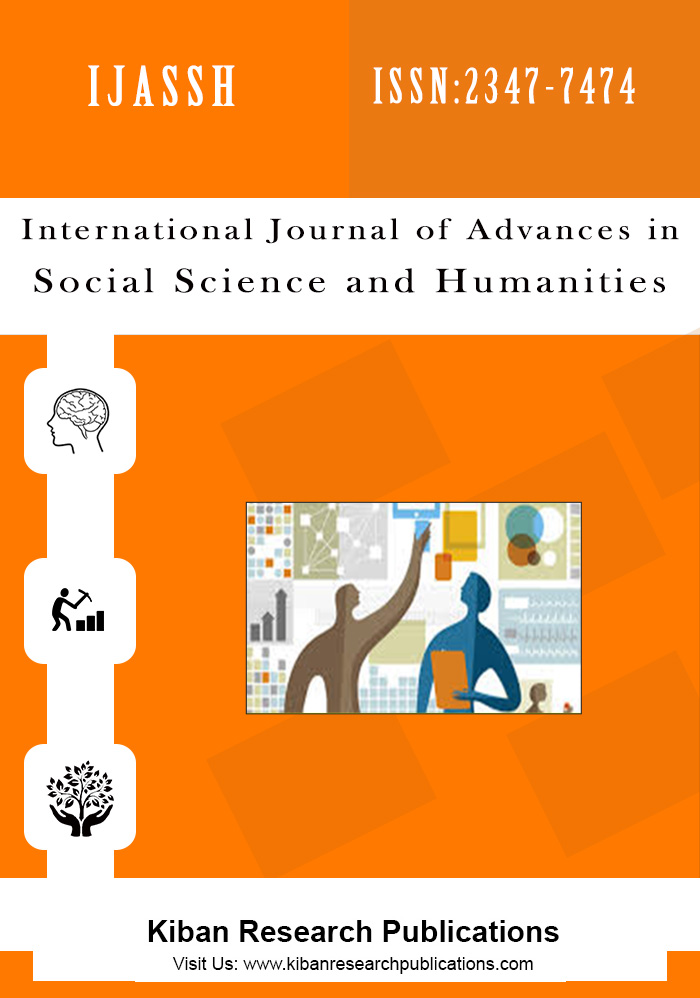Expected and Perceived Governance in a Social Rehabilitation Center from Mexico City
Abstract
Abstract: It is obvious that in the social rehabilitation centers, the governance studies suppose the negotiation, the mediation, the conciliation and the arbitration, and all this regarded to the management and administration previously agreed; both the treatment of addictions, the learning of certain trades, commissions, recreation, as well as recreation; all oriented to both early freedom and social reintegration. In that context, the objective of the present study was to establish the reliability and validity of an instrument that measures governance in social rehabilitation institutions. For the case, an exploratory study was carried out with a non-probabilistic selection of 100 inmates. From a structural model [χ2 = 94.044 (13gl) p = 0.000; GFI = 0.917; NFI = 0.901; CFI = 0.913; RMR = 0.008; HOELTER = 0.002] two dimensions were established concerning governance; this is, the expected and the perceived governance, which accounted for more than 20% of the total variance. Based on these findings, there are lines of research concerning the social rehabilitation governance; mainly based on a mechanism attached to the addictions treatment and the social abilities learning.
Â
Keywords: Governance, security, rehabilitation, contrasting, adjustment.
References
J Potter (1996) La representación de la realidad. Discurso, retórica y construcción social. (Barcelona, Piidos)
K Marx (2000) Introducción a la crÃtica de la economÃa polÃtica. (México: Siglo XXI, 1857)
P Feyerabend (1975) Contra el método. Esquema de una epistemologÃa anarquista. (Londres: NBL,)
V Fuentes, J Muyor, Z y Galinda (2010) ZEl trabajo social y las nuevas formas de reorganización del cuidado. Una aproximación al propósito de la ley de la dependencia. Alternativas, 17 (1):83-102.
A Eito (2012) La participación del usuario en el trabajo social. una mirada desde el presente hacia la concepción de humanismo. Acciones e Investigaciones Sociales, 32 (1):245-255.
A France (2011) Reflexiones en torno a la Segunda Conferencia Mundial sobre: Trabajo Social y Desarrollo Social, acciones e impactos. Rumbos, 7(1):22-31
C Naranjo (2000) El eneagrama de la sociedad. Males del mundo, males de la sociedad. (México: La Llave,)
E Dussel (2014) 16 tesis de economÃa polÃtica. Una interpretación filosófica. (México: Siglo: XXI,)
G Colli (1990) El nacimiento de la filosofÃa. (Colombia: Universidad del Valle,)
G Zabludosky (1987) Max Weber y la dominación patrimonial en América latina. Revista Mexicana de Ciencias PolÃticas y Sociales, 124(1):75-96.
J Carreón (2016) Desarrollo Humano: Gobernanza, Desarrollo Local y Emprendimiento Social. (México: UNAM-ENTS)
M Foucault (2002) ArqueologÃa del saber. (México: Siglo XXI)
M Foucault (1987) Hermeneútica del sujeto. (Buenos Aires: La Piqueta)
M Foucault (2000) Los anormales. (México: FCE)
M Foucault (2007) Nacimiento de la biopolÃtica. (México, FCE)
M Foucault (2003) Vigilar y castigar. (Buenos Aires, Siglo XXI)
M Quiroga, F Vargas, Ay Cruz (2010) Trabajo social y responsabilidad social: notas para una discusión ideológica. Tabula Rasa, 12(1):175-193
M Weber (2002) EconomÃa y Sociedad. (México, FCE)
N Luhmann (2006) SociologÃa del riesgo. (México: UIA)
N Morera (2010) El vÃnculo entre las ciencias sociales y el trabajo social: algunos elementos para su discusión. Reflexiones, 89(1):235-241
[P Bourdieu (1998) La dominación masculina. (Barcelona: Anagrama)
PBourdieu (1990) SociologÃa y Cultura. (México: Grijalbo,)
S Moscovici (1961) El psicoanálisis, su imagen y público. (Buenos Aires: Huemul)




